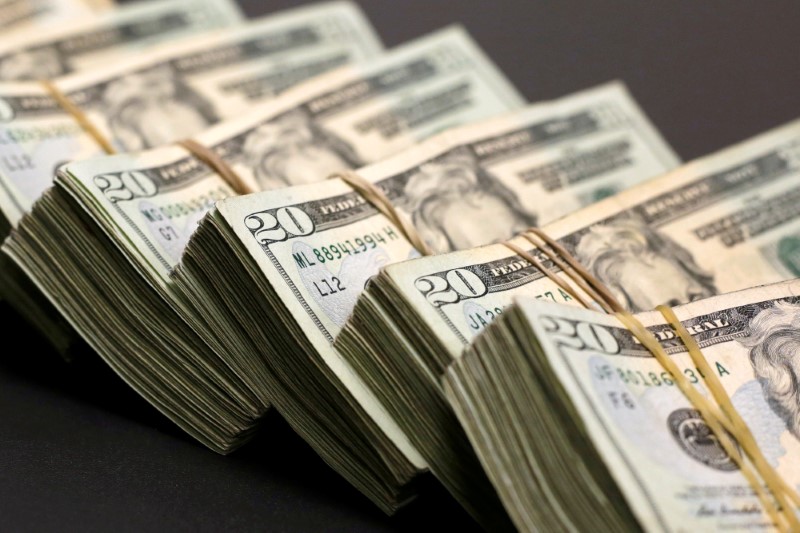Who is Kevin Hassett? Wolfe looks at the Trump ally tipped to become Fed Chair.
By Tommy Wilkes
LONDON (Reuters) - The dollar rallied on Thursday as the Federal Reserve's upbeat assessment of the economy combined with a flare-up in the trade tensions between the United States and China to boost demand for the U.S. currency.
The euro fell to a one-week low as the dollar gained in early European trading. The escalation in the trade row also put pressure on the yuan
The safety bid for the U.S. currency was further bolstered by higher U.S. Treasury yields.
After ending its two-day policy meeting, the Fed left interest rates unchanged, as expected, and said U.S. economic growth has been rising and the job market had continued to strengthen.
Analysts said the meeting was mostly uneventful although the central bank was more positive on the economy.
"Indeed, the only change even worth highlighting from the statement was a slightly more upbeat view of growth in economic activity, which the Fed now regards as "strong" as opposed to "solid" previously," Deutsche Bank (DE:DBKGn) analysts said.
U.S. administration officials said on Wednesday that President Donald Trump is proposing a 25 percent tariff on $200 billion worth of Chinese imports, rattling global financial markets. Equity markets fell.
The dollar index (DXY), which measures it against a basket of six currencies, rose 0.3 percent to 94.863, off last week's 3 1/2-week low of 94.084.
The euro fell as low as $1.1626 (EUR=), or 0.3 percent, its weakest since July 27.
The dollar slipped 0.1 percent against the yen to 111.66
The yen's gains were limited after it dropped on Tuesday, following the Bank of Japan's pledge to keep rates low for an extended period.
"The yen has weakened as a result of the BOJ's new forward guidance, but it's not that anything major has changed," said Minori Uchida, chief currency analyst at MUFG Bank.
"Nobody really believed anyway that the BOJ's quantitative easing would be ended this year or next year. I think the view that the yen will weaken as a result of the BOJ's forward guidance is fading," he said.
The British pound fell 0.4 percent to $1.3078
The Australian dollar, seen as a proxy for Chinese growth because of Australia's export-reliant economy, slipped 0.4 percent to around $0.7377.
China's offshore yuan fell 0.2 percent to 6.8372.
The Mexican peso
